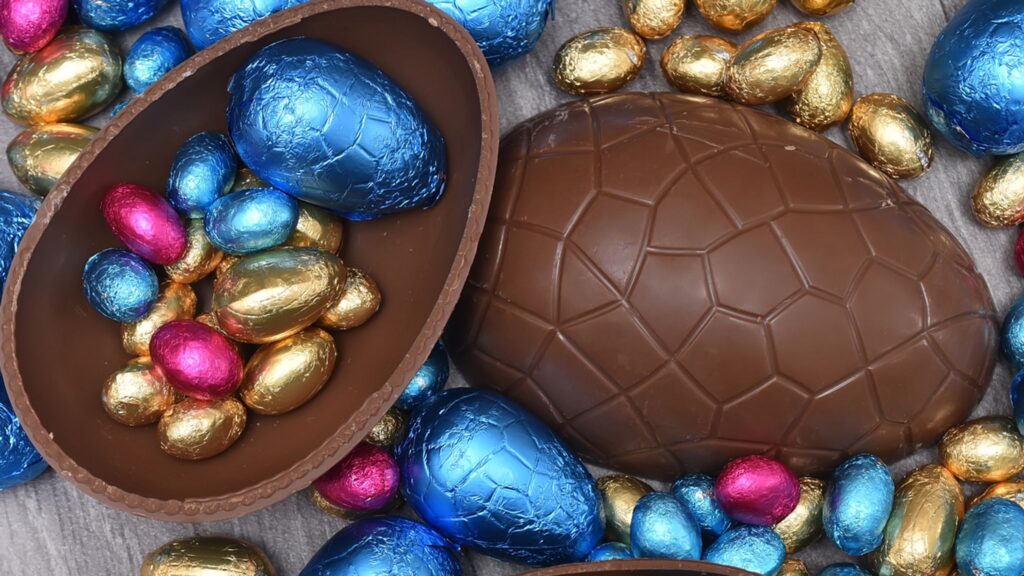Food & Climate
Easter food waste is huge especially for eggs. New research from food surplus app Too Good To Go has found that 899,640 Easter eggs go to waste every year in Ireland, representing €9 million in losses. And a staggering 12.7 million Easter Eggs are wasted in the UK.
The global social-impact company and the world’s largest market place for surplus food is urging consumers to rethink their habits, as it further revealed that one in four adults (25%) has admitted that he/she/they do/es not finish the chocolate received over Easter, according to a report seen by “Food & Climate” platform.
It also reported – in research carried out by Opinion Matters – that food waste does not stop with excess chocolate. Traditional Easter meals are also taking a hit.
Leftover meat
In the sample of 1,000 adults in the Republic of Ireland, some 85% of respondents said that they have leftover meat after their Easter Sunday dinner.
Furthermore, assuming that the average Easter egg costs €10 – the midpoint of the average range – the waste of chocolate adds up to €9 million, if multiplying wasted eggs by the average price.
These issues point to a growing problem with food waste, as well as under planning.
According to the research, the three foods most commonly going to waste are hot cross buns, chocolate bunnies, and roast potatoes.
The reasons for food waste are extensive – some 50% of respondents said that they overestimate portion sizes, 35.4% said that they let food expire, and 21.2% said that they had inadequate storage or freezer space.

Among those who discarded food over Easter, some 43% reported feeling guilty, while 33% felt conscious of the financial impact, and 32% felt frustrated.
However, some 40% reported feeling motivated to reduce food waste in the future, and 25% said that they are conscious of the impact of waste on the environment.
In order to curb waste this Easter, Too Good To Go has recommended storing food properly – for example, by freezing chocolate eggs in an airtight container, where they will stay edible for months, and they are perfect for melting in a hot chocolate.
It also suggested getting creative with leftovers by trying out new recipes to repurpose food, such as making chocolate bark, turning hot cross buns into bread-and-butter pudding, or using meat for a sandwich or tasty casserole.
Speaking ahead of the holiday, the sales manager of Too Good To Go, Machaela O’Leary, said, “Easter is a time for enjoying seasonal favorites, but it also leads to a spike in food waste.
“A little extra thought goes a long way in making sure the food we love doesn’t end up in the bin”, according to “Check Out”.
UK celebrations
As the UK prepares for Easter celebrations, Too Good To Go is encouraging consumers to consider a hidden consequence of our holiday indulgence: food waste.
Easter weekend is a highlight for families and chocoholics alike. Yet despite our love for chocolate and seasonal treats, the research from Too Good To Go reveals some startling statistics about what happens to these beloved goodies.
In the UK, a staggering 12.7 million Easter Eggs are wasted alongside 10.5 million uneaten Hot Cross Buns and Chocolate Bunnies that hop straight into the bin – and it’s not just the sweets! Over two-thirds (67%) of UK adults find themselves with leftover meat after their Easter Sunday feast, and a whopping 7.7 million roast potatoes are wasted.

In times when households across the UK tighten their purse strings, this level of food waste represents a significant – and needless – cost. However, reducing food waste is not just a smart financial move; it’s an opportunity to be more sustainable. Food waste plays a huge part in the climate crisis – responsible for a massive 10 per cent of greenhouse gas emissions globally1. By reducing food waste, households can significantly cut their carbon footprint, save money and contribute to a healthier planet, according to “Retail time”.

